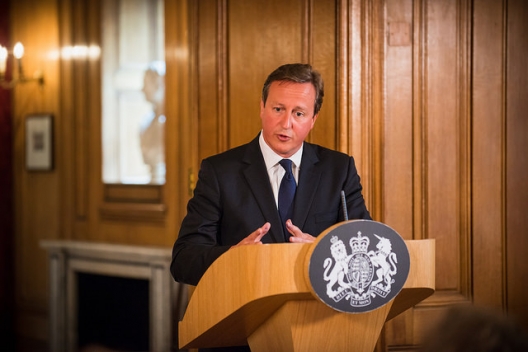
After the end of the Cold War, NATO stood down its highest readiness force. At this summit we decided to reverse that decision and scale up our readiness to respond to any threat and, at the same time, we also agreed to do more to build the capacity of other nations outside NATO to help them with their defence capabilities.
A new multinational spearhead force will be deployable anywhere in the world within 2 to 5 days.
This is vital in underlining our Article 5 obligations to collective defence.And the UK will support this by providing a battle group and a brigade headquarters.
We will also contribute 3,500 personnel to exercises in Eastern Europe between now and the end of 2015, as part of NATO’s efforts to ensure a persistent presence on our Eastern flank.
On capacity building, NATO has a vital role, as I’ve said, in helping other countries with their capacity to defend themselves against all threats, including terrorist threats.
When we consider how many of the threats NATO now faces including here in the UK, are coming from the Middle East, North Africa and elsewhere, this capacity building is becoming ever more important and it was a key priority for the UK at this summit that we made progress.
So NATO will now undertake capacity building missions, beginning in Georgia and Jordan with the offer of a training mission for Iraq as soon as the new Iraqi government is in place.
Excerpt from statement to the House of Commons by Prime Minister David Cameron, September 8, 2014.
Image: UK Prime Minister David Cameron speaks to the press, Aug. 29, 2014 (photo: Office of the Prime Minister of the United Kingdom)
